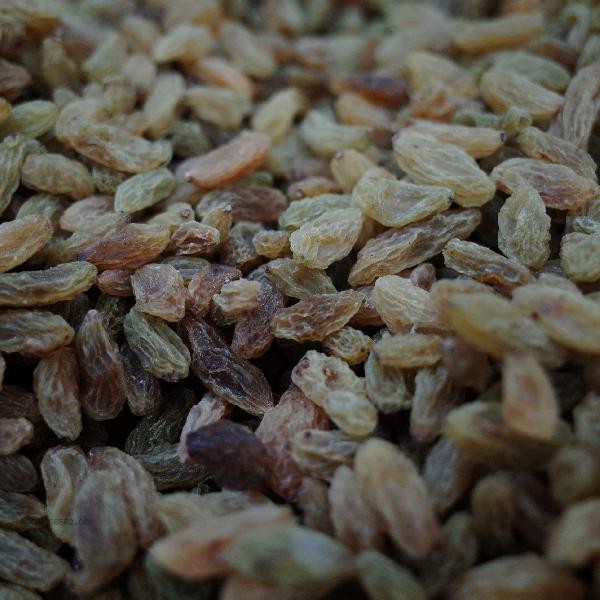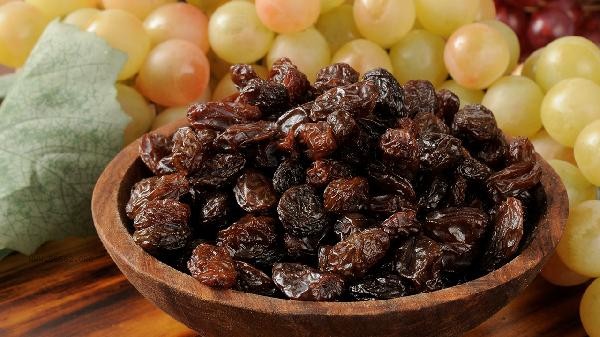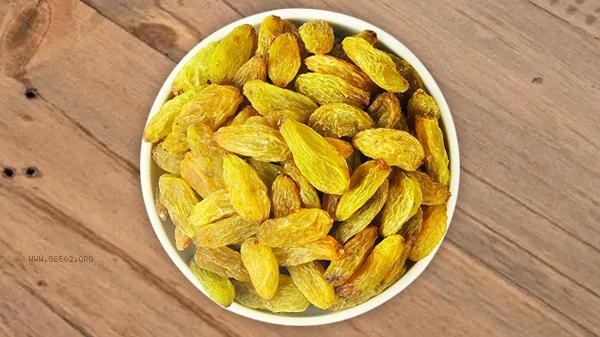Raisins are helpful for muscle building and can be consumed in moderation as a healthy snack. Raisins contain natural sugar, potassium, dietary fiber, antioxidants, and a small amount of protein, which can quickly replenish energy, alleviate electrolyte loss after exercise, promote gastrointestinal peristalsis, reduce muscle damage, and assist in protein synthesis.

1. Fast Energy Supply
Raisins concentrate the fructose and glucose in grapes, making them a high carbohydrate food. Eating a small amount of raisins 30 minutes before exercise can provide immediate energy support for high-intensity training and avoid muscle breakdown caused by insufficient glycogen. Its glycemic index is moderate and does not cause drastic fluctuations in blood sugar, making it a suitable meal option before strength training.
2. Adjust Electrolytes
Each 100 grams of raisins contains about 750 milligrams of potassium, which is higher than the potassium content of bananas. Potassium is crucial for maintaining muscle contraction function and nerve conduction. Consuming it after exercise can help restore electrolyte balance and prevent muscle spasms and fatigue. Compared to sports drinks, raisins can simultaneously supplement minerals and dietary fiber.
3. Promote absorption
Raisins have a dietary fiber content of 3-4 grams per 100 grams, which can improve the gut microbiota environment and enhance protein digestion and absorption efficiency. The tartaric acid it contains can inhibit harmful bacteria in the intestines, reduce gastrointestinal discomfort after exercise, and enable the intake of nutrients such as whey protein to be more fully utilized.

4. Antioxidant Protection
Raisins are rich in polyphenolic substances such as resveratrol and anthocyanins, and their antioxidant capacity is 5-8 times that of fresh grapes. These ingredients can neutralize free radicals generated during strength training, reduce oxidative stress damage to muscle fibers, accelerate muscle repair after training, and are particularly suitable for heavy weight trainers.
5. Assisted synthesis
Raisins contain a small amount of arginine and branched chain amino acids. Arginine can promote growth hormone secretion, while branched chain amino acids can directly participate in muscle synthesis metabolism. Although the protein content is only 3 grams per 100 grams, consuming it in combination with dairy or meat products as a plant-based protein supplement can improve amino acid utilization.

During muscle building, it is recommended to consume 20-30 grams of raisins per day, preferably natural sun dried varieties without added sugar. Can be paired with Greek yogurt, oatmeal, or nuts as an extra meal to avoid consuming high-fat foods that may affect digestion. Attention should be paid to its high heat density, which contains about 300 kcal per 100 grams. diabetes patients and fat reducing people should control their intake. The best effect is achieved within 30 minutes after strength training, which can be combined with whey protein powder to accelerate muscle recovery. Long term muscle building still requires sufficient intake of high-quality protein, and raisins are only one of the nutritional supplements.






Comments (0)
Leave a Comment
No comments yet
Be the first to share your thoughts!